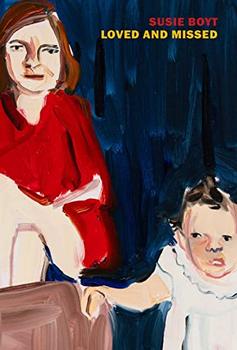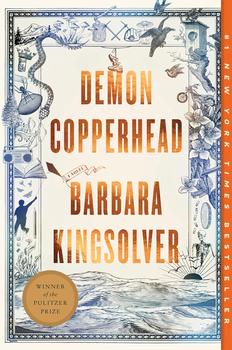Summary | Excerpt | Reviews | Beyond the book | Read-Alikes | Genres & Themes | Author Bio

London-based author and theater director Susie Boyt has written seven novels and the PEN Ackerley Prize-shortlisted memoir My Judy Garland Life. Her name might not be familiar to American readers, since Loved and Missed is her first novel to be published in the United States. However, some may recognize her famous family members: she is a daughter of painter Lucian Freud and a great-granddaughter of pioneering psychoanalyst Sigmund Freud. At risk of diminishing her own gifts through reference to her male ancestors, I would venture to assert that she shares the one's painterly eye and the other's interest in a psychological understanding of relationships. Through vivid, touching vignettes, her exquisite novella reveals the entire history of three generations of women: Ruth, a London schoolteacher; Eleanor, her heroin-addicted daughter; and Lily, Eleanor's plucky daughter.
Ruth is a clear-eyed narrator, matter-of-fact even when she is recounting devastating facts. She opens her story with an evening get-together with several old friends. One of them, Christine, reports that she saw Eleanor in a group of "street people" outside a Tube station and, shocked by her appearance, gave the disheveled young woman £10. Sad and ashamed, Ruth plunges into her memories of trying to maintain a relationship with her daughter. Loving an addict is an emotional rollercoaster. "Cascades of hope, cascades of despair," Ruth writes; "I was at sea with her and without her, out of my depth, famished, debased and drowning."
The narrative jumps around in time, with Ruth zeroing in on moments that characterize her fragile bond with Eleanor, or the effect of Eleanor's illness on those around her. A few of these are unforgettable. Ruth remembers the Christmas when she met Eleanor and her partner at the time, Ben, at a bus stop to give them turkey sandwiches and stocking gifts. As they were saying goodbye, Eleanor informed her mother that she was pregnant.
I didn't know whether to laugh or cry at Lily's christening scene, a farcical church service during which Ruth had to sing a hymn and stand up as godmother, and the other witness kept falling asleep. Ruth offered to look after Lily for a few days afterwards but, when she arrived at Eleanor's flat to return the little girl, was alarmed to find a stranger out cold — possibly having overdosed? — under a pile of coats and refused to leave her granddaughter in such a situation. She decided that day that she would be Lily's guardian from then on.
"Lily was not going to have a poultice childhood, a mending service, scrappy and provisional. I wouldn't step in. She was going to get the most anyone could give. They had had their chance. … Lily could think of her parents as a madcap weekend aunt and uncle, eccentric as circus folk, or astronauts, their hearts in the right place but their heads in the clouds."
It can be a bit dizzying how quickly Lily ages in Ruth's telling; four years pass within four pages at one point. Ruth's account closes with Lily aged 15 — a poignant parallel in that this was the age Eleanor was when she left home. Lily is amazingly well-adjusted given the disruptions of her childhood. She keeps trying to connect with her mother, but is also realistic about Eleanor's unreliability. Eleanor says she'll come over one day and Lily starts baking a cake, but then admits to Ruth she knows it's unlikely Eleanor will show, and quietly puts all the ingredients away. When life serves Lily yet another cruel blow, she quickly adapts.
It's impressive just how much is achieved in around 200 pages here, including a surprise point-of-view change. Secondary plots include Christine's on-again, off-again relationship with her husband, Luke, and Ruth's friendship with a fellow teacher, Jean, who becomes important in the later chapters. Boyt is attentive to family legacies — "Our fatherlessness an hereditary disease," Ruth opines for all three generations — and to the pain of having one's love not requited or appreciated. "Hard to know how to give to people who only wanted what would mutilate," Ruth thinks about Eleanor.
Boyt's prose is stunning as she traces the history of this complicated, makeshift family. I would particularly recommend the book to fans of Unless by Carol Shields for the picture of a daughter in extreme and precarious circumstances. The title Loved and Missed has a wry double meaning: "the aim was wrong and the love didn't quite get through," Lily jokes when she sees the phrase on a gravestone. But it also has connotations of anticipatory grief and unrewarded nostalgia. There can be love even where there is estrangement, or eternal separation. That is one of the enduring messages of this gem of a short novel.
![]() This review
first ran in the September 20, 2023
issue of BookBrowse Recommends.
This review
first ran in the September 20, 2023
issue of BookBrowse Recommends.

If you liked Loved and Missed, try these:

by Betsy Lerner
Published 2024
No one will love you more or hurt you more than a sister.
From Betsy Lerner, celebrated author of The Bridge Ladies, comes a wry and riveting debut novel about family, mental illness, and a hard-won path between two sisters.

by Barbara Kingsolver
Published 2024
From the New York Times bestselling author of Unsheltered and Flight Behavior, a brilliant novel which enthralls, compels, and captures the heart as it evokes a young hero's unforgettable journey to maturity.
Your guide toexceptional books
BookBrowse seeks out and recommends the best in contemporary fiction and nonfiction—books that not only engage and entertain but also deepen our understanding of ourselves and the world around us.